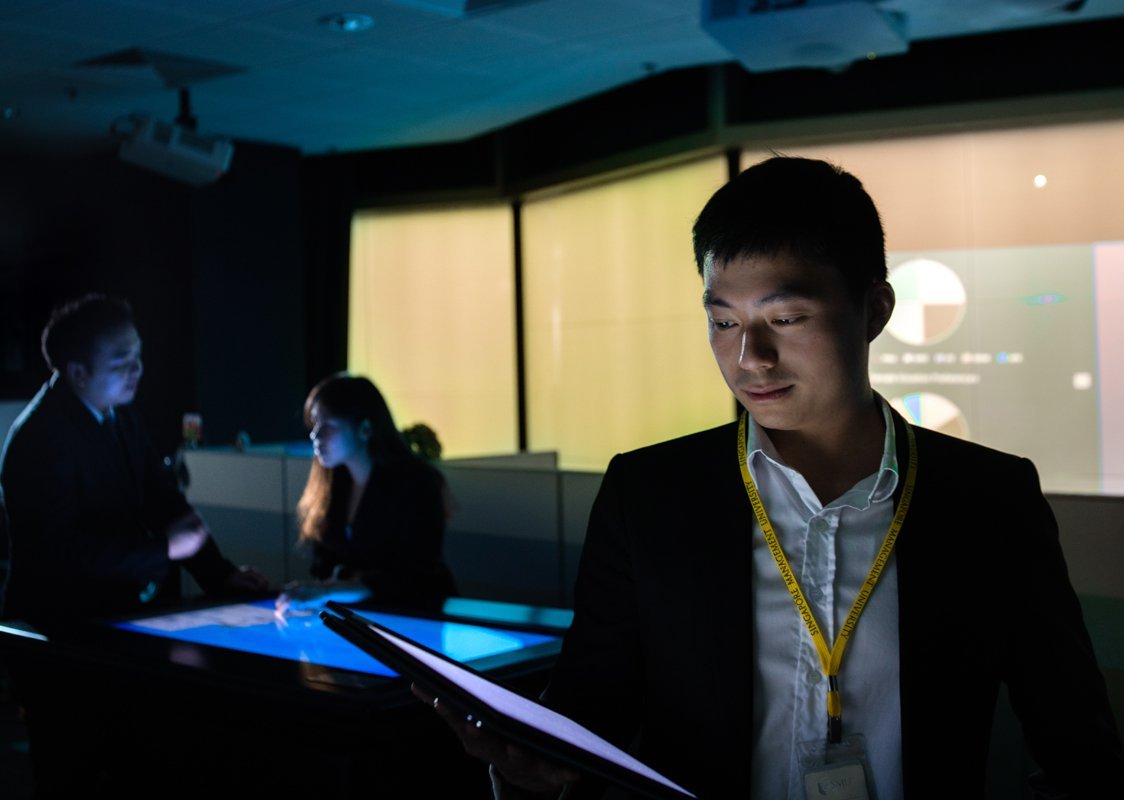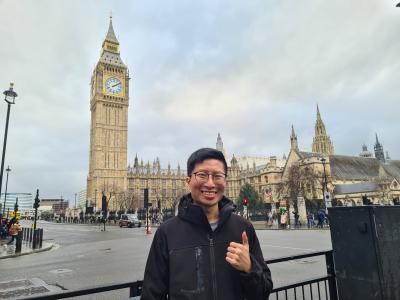
There is no blueprint for building a city that is sustainable, efficient and secure—in other words, a smart city of the future. With the availability of technological advances comes the need for professionals trained to harvest these breakthroughs to propel once-static urban landscapes into the future. SMU’s School of Information Systems launched a new academic major—Smart-City Management & Technology—in 2017 for this very purpose. The programme aims to produce industry-ready professionals who can address multidisciplinary concerns and use smart technology to solve real-world problems and create cutting-edge solutions.
With the rapid development and progression of technology and the Internet of Things (IoT), we find ourselves are staring at the future of our world—the Fourth Industrial Revolution, characterised by amazing technological breakthroughs spanning multiple fields and disciplines to enable and build a smarter world. Smart devices have changed the way we live, and our smartphones are proof that connected devices hold tremendous potential to truly transform our lives. Tasks can be automated and simplified, playlists can be customised through sensing your emotions and analysing your listening habits, and we can stay connected all over the world.
Alongside Singapore’s advancement in digital technology was the launch of a Smart Nation vision in 2014, led by initiatives in the sectors of health, living, mobility, and services. Consequently, there is a rising demand for enablers who can harness the abilities of information technology and IoT to connect people, businesses, and the government to truly aid Singapore in its transition to truly become a Smart City. To date, the government has put in place a number of frameworks to aid our transition to becoming a Smart City, such as piloting a Smart HDB Town Framework through smart living solutions in HDB estates, and enhancing the government’s data portal for more effective sharing of data between government agencies to create better solutions.
Technology has transformed the relationship between industries and disciplines, and in an article on OpenGov, Foreign Minister Dr Vivian Balakrishnan explains that “it is the advancements in technology which lead in turn to economic development. Then, the way that the economy unfolds affects political outcomes of countries.” He adds, “In other words, it is technology, then economics, and then politics.” Info-communications technology, networks, and connected devices are key and can have significant impact on a country, affecting even something seemingly unrelated like politics. Smart technology is the future, and to remain informed, relevant and to effectively contribute to this development is extremely important in helping Singapore develop.
Hence, graduates of this Smart-City Management & Technology major will find themselves equipped with the foundation to plan, create, and evaluate designs and programmes that can effectively contribute to making Singapore more liveable, efficient, sustainable, and safe for all citizens.
As Professor Pang Hwee Hwa, Dean of SMU School of Information Systems, says: “This timely programme equips students to seize career opportunities arising from the global trend towards smart cities, and Singapore’s Smart Nation Initiative in particular. Students will acquire a sound foundation of the interdisciplinary knowledge that is required to address complex real-world problems.”
Are you ready to play a part in building our Smart Nation?


